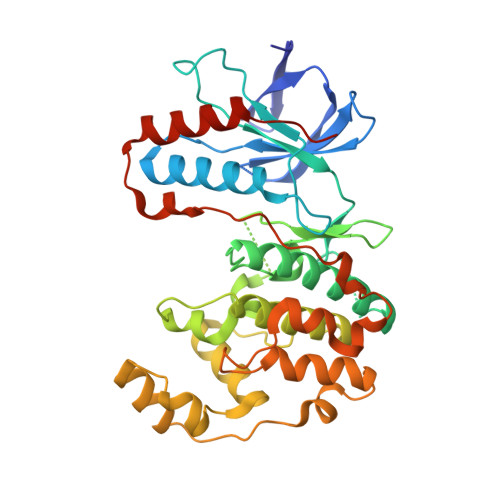Displacement assay for the detection of stabilizers of inactive kinase conformations.
Kluter, S., Grutter, C., Naqvi, T., Rabiller, M., Simard, J.R., Pawar, V., Getlik, M., Rauh, D.(2010) J Med Chem 53: 357-367
- PubMed: 19928858
- DOI: https://doi.org/10.1021/jm901297e
- Primary Citation of Related Structures:
3HV3, 3HV4, 3HV5, 3HV6, 3HV7 - PubMed Abstract:
Targeting protein kinases with small molecules outside the highly conserved ATP pocket to stabilize inactive kinase conformations is becoming a more desirable approach in kinase inhibitor research, since these molecules have advanced pharmacological properties compared to compounds exclusively targeting the ATP pocket. Traditional screening approaches for kinase inhibitors are often based on enzyme activity, but they may miss inhibitors that stabilize inactive kinase conformations by enriching the active state of the kinase. Here we present the development of a kinase binding assay employing a pyrazolourea type III inhibitor and enzyme fragment complementation (EFC) technology that is suitable to screen stabilizers of enzymatically inactive kinases. To validate this assay system, we report the binding characteristics of a series of kinase inhibitors to inactive p38alpha and JNK2. Additionally, we present protein X-ray crystallography studies to examine the binding modes of potent quinoline-based DFG-out binders in p38alpha.
Organizational Affiliation:
Chemical Genomics Centre of the Max Planck Society, Otto-Hahn-Strasse 15, D-44227 Dortmund, Germany.
















